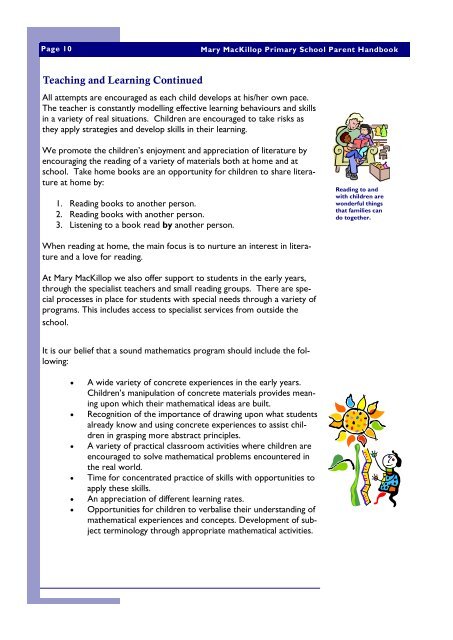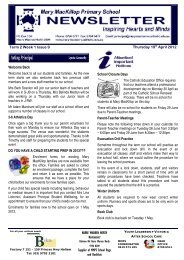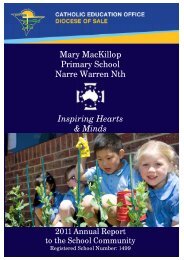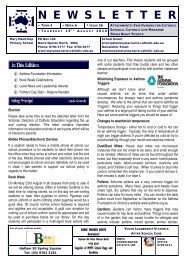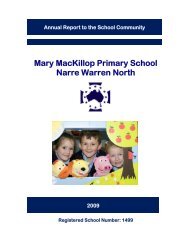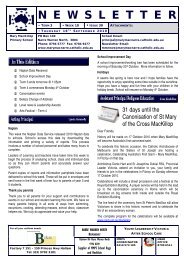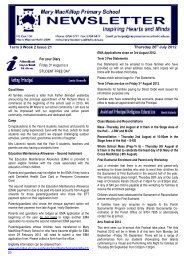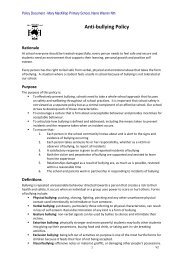Parent Handbook 2013 - Mary Mackillop Primary School
Parent Handbook 2013 - Mary Mackillop Primary School
Parent Handbook 2013 - Mary Mackillop Primary School
Create successful ePaper yourself
Turn your PDF publications into a flip-book with our unique Google optimized e-Paper software.
Page 10<br />
Teaching and Learning Continued<br />
All attempts are encouraged as each child develops at his/her own pace.<br />
The teacher is constantly modelling effective learning behaviours and skills<br />
in a variety of real situations. Children are encouraged to take risks as<br />
they apply strategies and develop skills in their learning.<br />
We promote the children’s enjoyment and appreciation of literature by<br />
encouraging the reading of a variety of materials both at home and at<br />
school. Take home books are an opportunity for children to share literature<br />
at home by:<br />
1. Reading books to another person.<br />
2. Reading books with another person.<br />
3. Listening to a book read by another person.<br />
<strong>Mary</strong> MacKillop <strong>Primary</strong> <strong>School</strong> <strong>Parent</strong> <strong>Handbook</strong><br />
When reading at home, the main focus is to nurture an interest in literature<br />
and a love for reading.<br />
At <strong>Mary</strong> MacKillop we also offer support to students in the early years,<br />
through the specialist teachers and small reading groups. There are special<br />
processes in place for students with special needs through a variety of<br />
programs. This includes access to specialist services from outside the<br />
school.<br />
It is our belief that a sound mathematics program should include the following:<br />
A wide variety of concrete experiences in the early years.<br />
Children’s manipulation of concrete materials provides meaning<br />
upon which their mathematical ideas are built.<br />
Recognition of the importance of drawing upon what students<br />
already know and using concrete experiences to assist children<br />
in grasping more abstract principles.<br />
A variety of practical classroom activities where children are<br />
encouraged to solve mathematical problems encountered in<br />
the real world.<br />
Time for concentrated practice of skills with opportunities to<br />
apply these skills.<br />
An appreciation of different learning rates.<br />
Opportunities for children to verbalise their understanding of<br />
mathematical experiences and concepts. Development of subject<br />
terminology through appropriate mathematical activities.<br />
Reading to and<br />
with children are<br />
wonderful things<br />
that families can<br />
do together.


